(Note: I’m excited to be giving away one FREE copy of Good Chinese Wife! Want to enter the giveaway? Scroll down to the end of this post for details!)
Susan Blumberg-Kason’s new memoir Good Chinese Wife comes with a revealing subtitle: A Love Affair With China Gone Wrong. Before you even open the book, you already know what kind of love this is – a marriage between a white American woman and a Chinese man that doesn’t end well.
But as I’ve learned over time, there’s tremendous value in sharing the stories of couples that didn’t work out. That’s why I sent out a submission call for stories of love lost and unrequited love. And that’s why Good Chinese Wife should be on the reading list of everyone who follows this blog.
I’m calling it the AMWF memoir of 2014 and you shouldn’t miss it.
This book has it all. A Chinese love interest with movie-star looks. A romance set in glitzy Hong Kong. A huge red wedding in Wuhan. A fascinating journey across China in the mid-1990s. And a transformative tale of how one shy young woman eventually finds the courage to make a dramatic escape.
But most importantly, Good Chinese Wife is just an incredibly entertaining memoir. It’s the kind of book that you’ll open, thinking you’re only going to read for a little while, and before you know it you’ve devoured the whole story in one sitting.
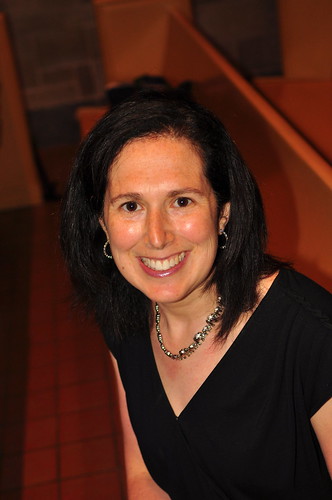
As someone who has known Susan for several years, I’ve had the privilege to witness the inspiring metamorphosis of Good Chinese Wife from manuscript to published memoir. It is an extraordinary honor to introduce you to Good Chinese Wife and Susan through this interview.
A freelance writer in Chicago, Susan has written for the Chicago Sun Times, the Journal of the American Dietetic Association, and Chicago Parent magazine. Her essay “Ninety Minutes in Tsim Sha Tsui” is included in the fabulous new anthology How Does One Dress to Buy Dragonfruit. She also wrote All the Tea in Chicago, the ultimate guidebook to the city for tea enthusiasts.
I talked to Susan to learn more about her memoir – from what inspired her to write it, to her experiences as a yangxifu (the foreign wife of a Chinese man) in the mid-1990s, to what she hopes readers will come away with from her story.
—–
When did you first realize you wanted to turn your story into a memoir? What ultimately inspired you to write it?
I first thought about writing this memoir after my divorce attorney in California asked me to write out everything that went wrong in that marriage. She needed all the details in case we went to trial. It was 14 years ago and I was living with my parents. They didn’t have a laptop connected to a printer and I wasn’t in the mood to camp out in front of the basement desktop—after having felt so isolated for the past five and a half years—so I hand-wrote it over the span of a week in the company of my family. This document was sixty-seven pages! When I proofread it before sending it off to my lawyer, I thought, “Wow! This would make a great book.”
A week later I saw the movie “Not Without My Daughter” for the first time. It was about a woman who almost lost her daughter when her family traveled to Iran to visit her husband’s family. The husband had lived in the US for 20 years, but when he returned to his motherland, he suddenly wanted to stay there and keep his daughter there. I cried because the same thing could have happened to me. I wanted to share my story with others and hoped it would give parents in cross-cultural relationships something to think about if they’re in similar situations.
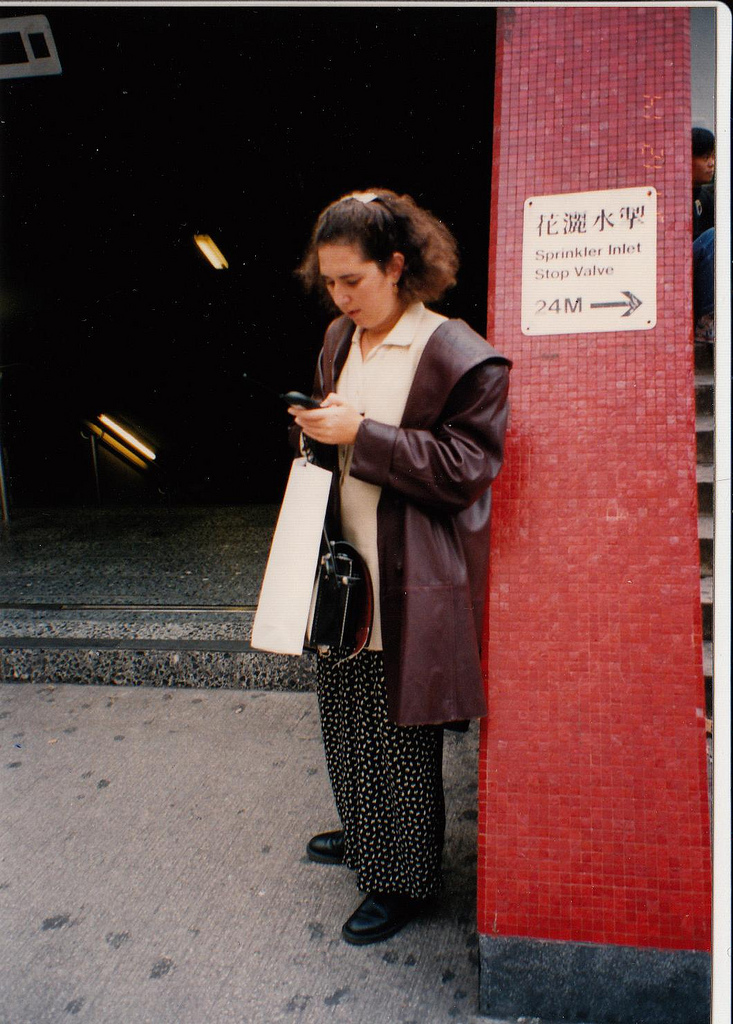
Your love affair with Cai, a man from Wuhan, China, takes place in Hong Kong in the mid-1990s, at a time when you were mainly a graduate student. What are some of your most interesting memories about dating in Hong Kong back then?
Hong Kong was magical back then! I was so happy to be back (I’d lived there for a year in 1990-91) and open to new opportunities, including dating. Maybe it was the thrill of being back and the comfort I felt around Hong Kong people, but I definitely took more chances there than I had back in the US. There was a new confidence in the air as people who had left Hong Kong in the 1980s were returning. One was a friend of a friend who confided some pretty heavy personal history to me on our one and only date. At one point he became violent as he grabbed my arms and squeezed them as if in a vice. I was scared about leaving that bar—we were out in the middle of the New Territories—but in the end he paid for my taxi ride home, which was two hours away. I also went out with a television anchorman who promised a weekend away in Macau, but canceled at the last minute. And then there were the two guys I wrote about in the book, the two I went out with before I met Cai.

How did people react to yangxifu back in the mid-1990s?
It was a novelty for Chinese men to have a foreign wife. In Hidden River, Cai’s hometown in Hubei province, his parents had a friend whose son had married a Japanese woman. She was a legend in that danwei—whether or not people had met her—because she was a foreigner. So my inlaws were very accepting of me and liked to brag about me with their friends. When I walked around Hidden River, people were all very polite, even when they stared and pointed at my curly hair and western nose.
 Your wedding in 1995 was special compared to the average wedding banquet in Wuhan. Could you share with us some of the things that made your celebration different?
Your wedding in 1995 was special compared to the average wedding banquet in Wuhan. Could you share with us some of the things that made your celebration different?
Well, back then children of Communist Party members had to have modest wedding celebrations. For instance, they could only use a couple of cars in their motorcades and could only have ten tables at their banquets. But because I was a foreigner, those rules didn’t apply to my wedding even though my father-in-law was a Party member. We had twenty tables at our wedding and five or six cars. Traditions were still low key in China then, so weddings were simple and quick. There weren’t tea ceremonies and the like. And women in Hubei didn’t wear red qipaos. It was all big poufy white wedding dresses. I had a difficult time finding a red qipao in Suzhou!
Cai’s parents also play a major role in your story. Give us one of your favorite scenes from the book featuring your inlaws.
I think my favorite scene in the book was when they were leaving San Francisco to return to China. They had lived with us for ten months and after many clashes about childcare, I realized too late, of course, how much I had appreciated their presence at home. Every night we watched Chinese soap operas and news from Beijing while Cai went out. And they were often my only adult interaction at home. As we said goodbye at the airport, I also thought about how difficult it must be for them to leave Jake, their beloved grandson. So this scene is full of contrasts and difficult emotions.
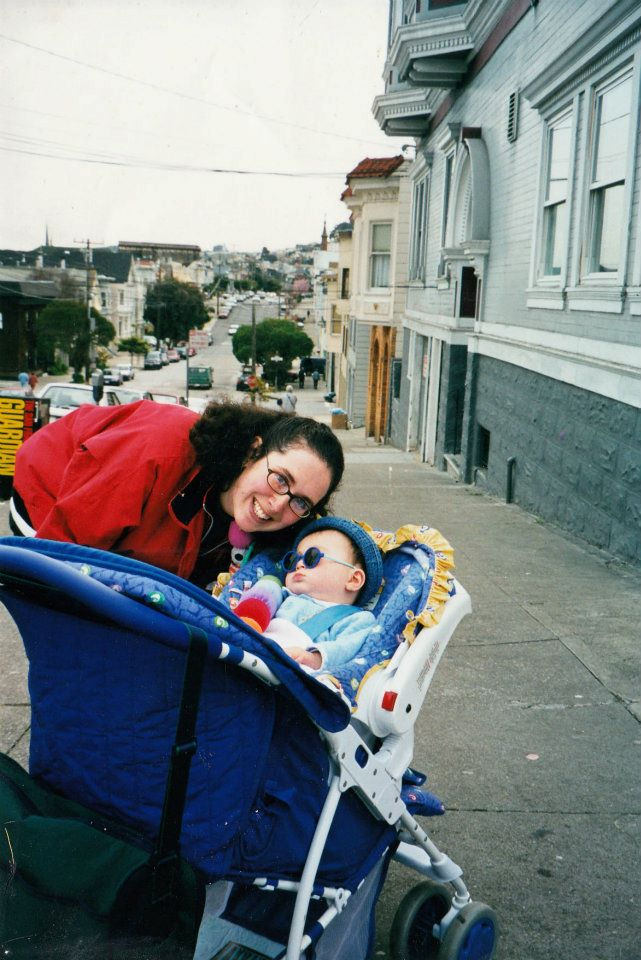
Your book includes many memorable characters, but none more so than “Japanese father” — a rather unconventional father-figure to Cai. Without giving everything away, could you tell us something about this fascinating character?
Japanese Father was a music professor who visited China one summer and met Cai in Wuhan. The two became pen pals and wrote long letters to each other almost every week. The Japanese economy was so far ahead of China’s at the time—it wasn’t even comparable—so the opportunities that Japanese Father could offer Cai, and later his friend Rui, were very attractive to young teachers who had no other way of making more than US$75 a month. Japanese Father had a lot of time to spend on his Chinese protégées because he was estranged from his wife and son. His daughter still spoke to him, though.
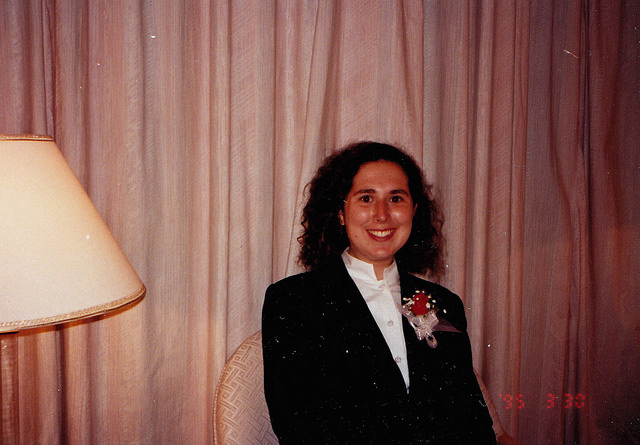
As the subtitle explains, your story is “a love affair with China gone wrong.” Some people may see your book as yet another story that casts Asian men in a negative light, as well as AMWF relationships and even China itself. How would you respond to those concerns?
The subtitle refers to my initial attraction to China and how that all changed. It wasn’t necessarily a bad thing; it just didn’t go according to plan. As for a negative portrayal of Asian men, I can only see two Asian men who don’t come out looking great. Some reviewers think that Cai is sympathetic, and I can see that, too. But the others—Baba, Cai’s friend Rui, my former brothers-in-law, and even the guys I dated in Hong Kong—are portrayed just as men in any other countries. They have a variety of positive traits and aren’t lumped into one general category. And as one friend pointed out, at the end I go to lengths to protect the Chinese male who matters most to me—my son Jake. As for AMWF relationships, I clearly do everything I can to make mine work. In writing my story, I hope that people will see how not to conduct an AMWF relationship! And as for China, I felt aligned with many young Chinese at that time. Every time Cai and I returned to China, he was heartbroken that it was changing so quickly and wasn’t like the China of his childhood. I echoed his feelings and could see how things were different even from my first trip to China in 1988. To me, that’s not being anti-China, but rather wishing for a smoother transition, for China to have eased into the twentieth century instead of leaping into the twenty-first in one blink!
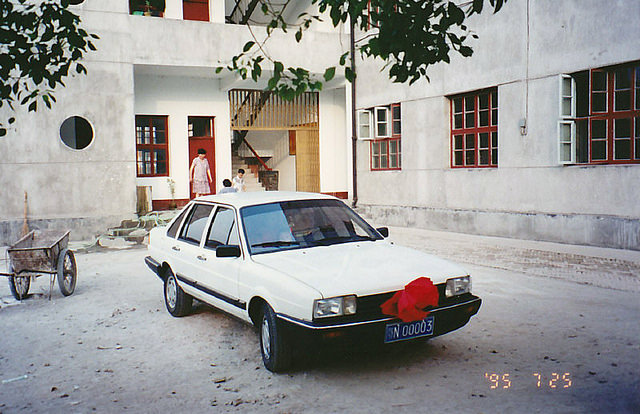
Could you share some of the lessons you’ve learned from your courtship and marriage to Cai, and what you hope readers take away from your book?
From the courtship, people will probably conclude that I married Cai too quickly. But I think it’s more than that. He told me from the get-go that he had certain conditions for our marriage. Those are things I ignored or thought I could eventually get him to change. That should have been my red flag, not the time in which we became engaged and married. And from the marriage, I hope people can see that it’s not a good idea to justify bad behavior in the name of cultural differences, whatever those may be. (Unless we come from the exact background as our partner, we will have cultural differences. My new husband and I are from different religious backgrounds.) If something doesn’t sit well, it doesn’t sit well and shouldn’t be tolerated. It doesn’t matter if the person is from Asia or the US or wherever. One more thing: just be yourself and you’ll be fine!
—–
Thanks so much to Susan Blumberg-Kason for enlightening us about Good Chinese Wife!
Want to win a FREE copy of Good Chinese Wife? I’m giving one away on Twitter to anyone based in the US or Canada. And it’s simple to enter! Just tweet the following:
[Tweet “@jossailin is giving away the new memoir #GoodChineseWife and I want to win!”]
Entries must be received by 12 midnight Pacific Time on July 16, 2014! I’ll then notify the winner via messaging on Twitter. Good luck!
UPDATE: Congratulations to @JohnWGuise for winning the giveaway!
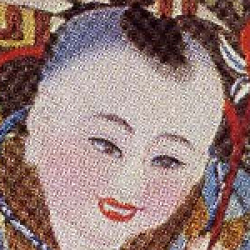
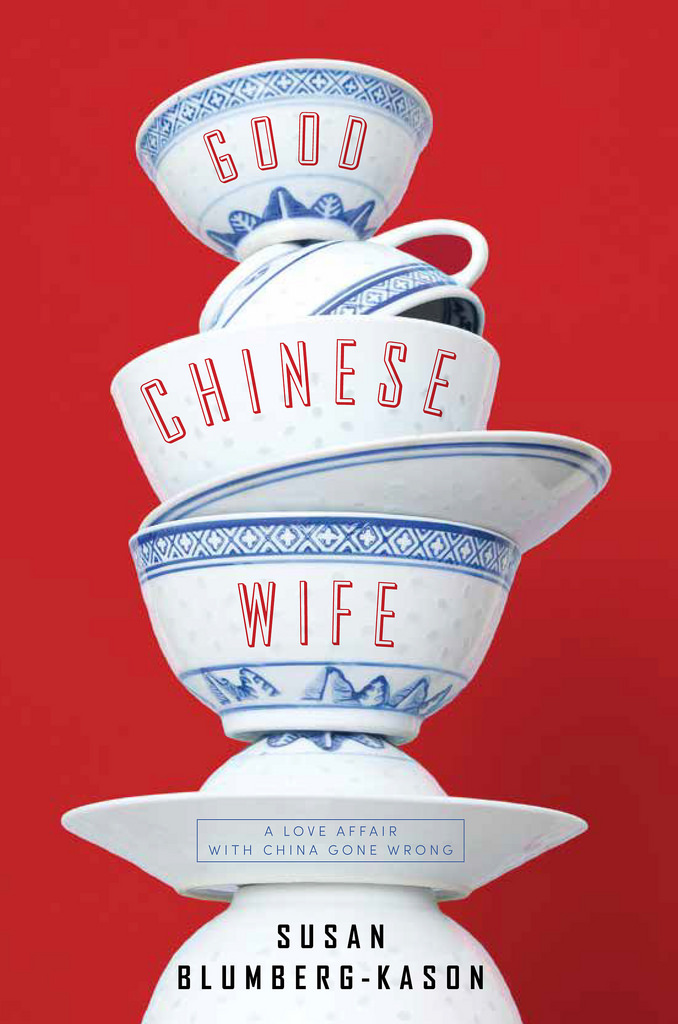
After reading an advance copy of “Good Chinese Wife,” Susan’s story has stayed with me. Like every story of a relationship (especially an international relationship like hers) it’s a complicated, multifaceted story. I was interested to know that the genesis of Susan’s memoir was the 67-page document she wrote for her lawyer. Thank you, Jocelyn, for starting the blog tour with your questions. I look forward to visiting other blogs in the days to come.
Thanks Nicki! I was also fascinated when Susan first shared that with me (that writing about her marriage for the divorce inspired her to write a memoir about it), it’s the first time I’ve ever heard of something for legal proceedings as the motivation to actually do a book.
We all can’t wait to read your post too Nicki!
Thank you so much, Jocelyn, for this wonderful interview and for putting together my pre-publication date blog tour! It was great fun answering your thoughtful questions. And thank you, Nicki, for your lovely comments. I’m so honored. I can’t wait for your tour post, too!!!
You’re welcome Susan! I should thank you for sharing your personal photographs with me for the post!
Thanks Jocelyn for sharing this part of the story with us!
I always remind to people that or in laws are here temporary, as our parents do. In this interview Susan praises her mother in law for spending time with her at home while Cai was out as her own parents would have done. Mothers will be mothers.
Sometimes we need that, time to open our eyes and see that there is people in our lives that are supporting us much more than we actually realize, and when we realize is time to let it go.
I can see how Susan has learned a very valuable lesson here, and I totally agree, is not about getting married fast or young, is about “not listening” to the red flags.
Happy you are happy Susan!
You’re welcome Laura!
Yes, Susan learned a lot from her experience — and in reading her book, we can learn from her as well.
It has been very interesting reading this interview! Now I have more ideas that I will add to my review on Sunday. So many great bloggers talking about the book, I’m feeling the pressure haha.
Thanks for inviting me to be part of it!
Thanks for the comment Marta! Oh, I hope you don’t feel too much pressure! I’m sure your post will be wonderful, just like your blog. 🙂
After reading the book Susan became my hero, I literally got emotional reading it, including wish to punch few people in the face (I cannot write it in the review, but that’s how I felt).
Great person, great book. And great interview 🙂
Wow, you teared up when reading the book? I probably would have if I didn’t know some of the story before going into it. But yeah, there are definitely some emotional moments in the story.
I totally agree — a wonderful person, wonderful book! And thank you for saying it’s a great interview!
I enjoyed reading the interview.
I particularly liked the last paragraph: ” If something doesn’t sit well, it doesn’t sit well and shouldn’t be tolerated. It doesn’t matter if the person is from Asia or the US or wherever.” I wrote something similar in my review of the book.
Thank you for the interview, it was very interesting read and gives light to many things in the book. It was especially interesting to read what Susan thought about her marriage in retrospect and and what she hopes us readers can take from the book. I won’t go into details about the book, I’ll do that in my own review on the 17th.
Great interview. Her book definitely sounds interesting. I’ll have to add it to my reading list!
A truely passionate AMWF love story
http://www.dailymail.co.uk/news/article-2692015/Couple-arrested-having-sex-roof-Chipotle.html
What a nice interview; I’m excited to read the book. Hoping it will be on Kindle so I don’t have to wait for my sister to bring me a hard copy!
Charlotte, I saw there is going to be a Kindle edition! I love Kindle books too as that way you don’t have to wait 🙂
I have not read the book. If my comments feel harsh in any way, I apologize.
I live in cross-cultural relationship, and I am the chinese partner.
I feel constantly being “repressed” in a way that I can’t express my opinions fully. If you have learned a second language, you will know there is always more in your head
than you can say. This feeling often leads to frustration.
While Susan can be very articulate to tell her side of the story, I wish there is more on the husband’s side. I wish to tell mine, but I can’t manage to get it out in the right words. You see what I mean?
By no means I am implying every marriage should last no matter what. But I start to realize it is higher price to pay on the Chinse side. It is very often the case.
The relationship requires sacrifice from both parties. But I think people like Susan often has more choices being an American.
In any relationship, we need to respect, love, and care for each other. From what I read, Susan accepted responsibilities for her own decisions. Maybe it was not the right decision to marry at the first place.
But it is ok. I just wonder if the husband has to struggle as much as we (the chinese partners) have and give up in a way often not recognizable. This type of relationship is challenging.
I think about what is the hidden cost of the relationship a lot these days.
Thank you for this honest and well-written interview. Having read the book, it was great to put some pictures to the places and people in the book — and especially to see photos of the younger Susan!
Another marriage that broke up was “the Downtown Diner.” We dont hear from her lately. I do not believe Susan’s marriage broke up due to racism in America. But, I am left getting a gut feeling that AMWW marriages where the couple lives in an Asian country such as Singapore or Japan or for that matter, China have a better chance of surviving than AMWW couples in the US, with Hawaii and the west coast being the exceptions. All the AMWW marriages that I know of in the south, 10 of them in Texas, three in Alabama and one in Mississippi, have broken up (I am defining Asians to include Indians from the Sub-Continent), plus you can include the Downtown Diner as well…whereas the five AMWW couples in Hawaii and three in Washington State are still together after 25 years….so I wonder aloud whether racism and pressure from society has anything to do with it…may be the Asians are more accepting of AMWW couples than whites, especially in the US South? And whites in WA and HI are more accepting than in the rest of the country?
However, despite unwelcome attention and violence, one AMWW couple’s marriage survived in middle America…
http://www.amazon.com/Hapa-Girl-Memoir-May-lee-Chai/dp/159213615X
Am reading the book, and so far it feels very familiar as well as relatable. 🙂 Promise to get finished by the 24th 😀
Hi Susan,
If you are reading this comment, I just want you to know that I just bought your book (A Good Chinese Wife: A Love Affair With China Gone Wrong) and I am half way through. I just want to say that your book is great, but I have not yet finished reading it. My eyes are just glued to your book. You had me laughing and cheering for you when you were able to win the love of your life (Cai) and how you both romanced each other culminating into a beautiful marriage. Then I wept for you when he became so controlling and domineering, when he ignored you for days, when he left you to be with his friends and the bad Professor Yoshimoto, when he would not allow you to take a brief visit at the foreign book store, when he called you “dirty” and when he transmitted trichomoniasis to you. Damn it, Susan! How could you allow yourself to be abused like this?
I am certain that I will have more comments after I finish reading it in the next day or two.
Fred